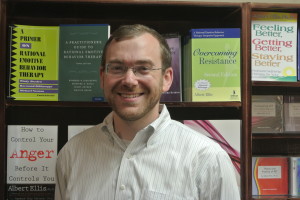by Mark Schiffman, M.S.
Albert Ellis encouraged the pursuit of hedonic happiness, which can be defined as the seeking of pleasure and the avoidance of pain. However, hedonic happiness is not the same thing as making risky short-term decisions in order to seek pleasure in the moment. The YOLO (You Only Live Once) craze of a few years ago was a good example of trying to increase short-term happiness without really thinking through the consequences. Back in 2012, the Wall Street Journal collected a few famous YOLO tweets to show how people used the expression to justify incredibly risky pursuits. “Switching seats while the car is goin 100+ #yolo” or “Risking my chances of going to jail for 60 days…#YOLO.” In the midst of the craze, comedian Jack Black tweeted “I am fairly certain that ‘YOLO’ is ‘Carpe Diem’ for stupid people.”
Instead of just focusing on seizing the day for short-term hedonism, Ellis encouraged long-term hedonism. Ellis and Bernard (1985) wrote that “Well-adjusted people tend to seek both pleasures of the moment and those of the future, and do not often court future pain for present gain. They are hedonistic, that is, happiness-seeking and pain avoidant, but they assume they will probably live for quite a few years and that they had better think of both today and tomorrow, and not be obsessed with immediate gratification.” [1] For Ellis, it is true that you only live once, but instead of that being an impetus for short-term pleasure, it should encourage balancing short-term pleasure with long-term happiness.
What’s also clear, is that often times, in order to ensure long-term happiness, we need to sacrifice short-term pleasures. Michael Bernard (2011) argues that long-term hedonism often requires working on the ability to “give up all forms of procrastination and make the sacrifices in the short-term of immediate pleasure and make the effort in doing things that are unpleasant and frustrating that are necessary to bring you pleasantness and fulfillment in the long-term.”[2] It is easier than ever to choose the short- term pleasures of Netflix, Facebook, and ESPN, but we might have to sacrifice some of these short-term pleasures if we want long-term happiness.
[1]Clinical Applications of Rational-Emotive Therapy p. 8
[1] Rationality and the Pursuit of Happiness: The Legacy of Albert Ellis, p. 75

